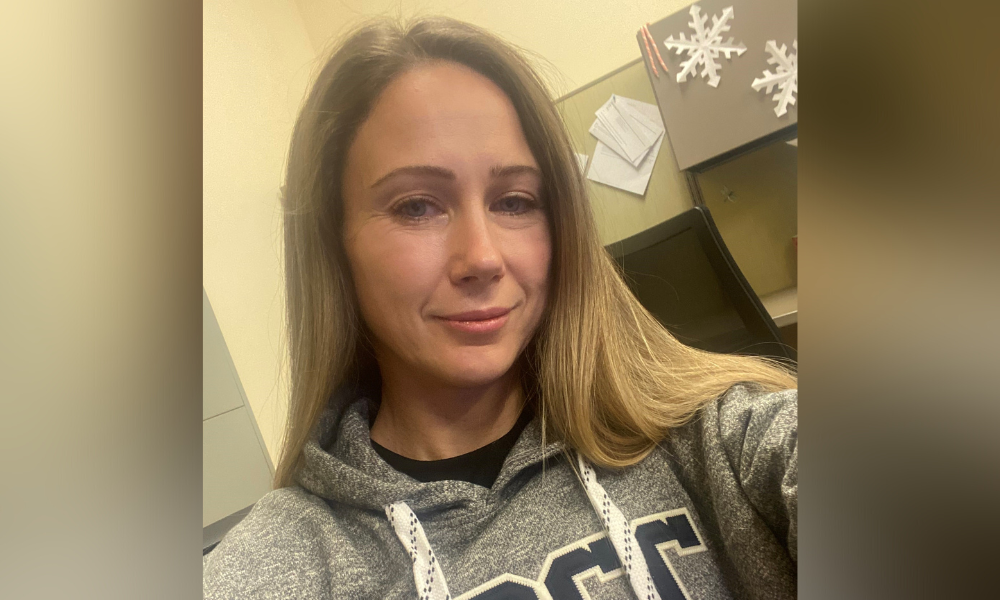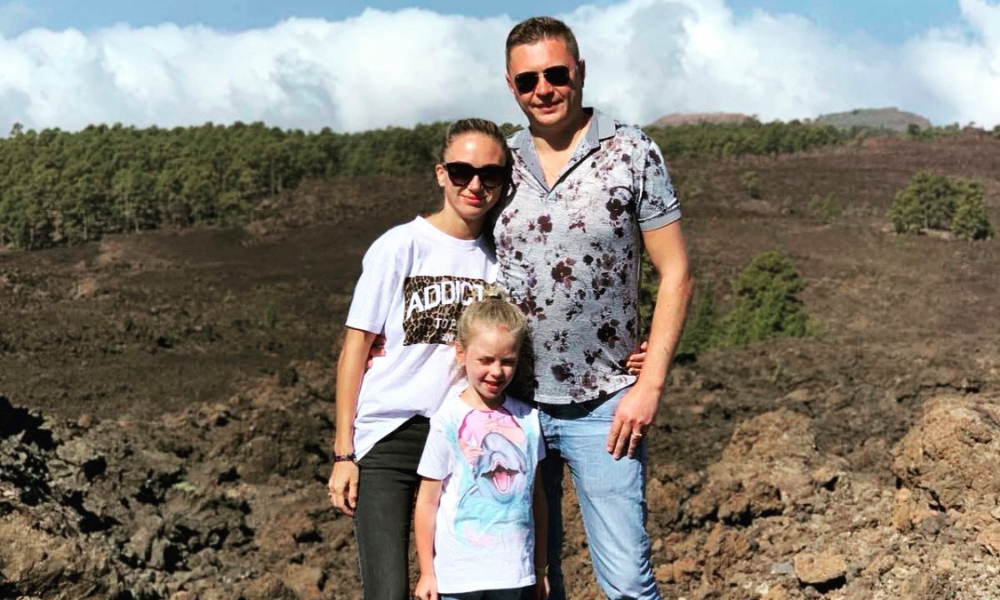One year after Russian invasion, Kulakovska and her family settle into new life in New Brunswick

As Viktoriia Kulakovska begins her tale of how she made her way from Odesa, Ukraine, to Fredericton, New Brunswick, she says, “Okay, let me begin, but I will start crying. But that’s okay.”
And, as she predicted, the tears come almost immediately when she recalls what it was like exactly a year ago when Russia invaded Ukraine, euphemistically calling it a “special military operation.”
Kulakovska, who trained as a lawyer and was at the time of the invasion working as a legal assistant with her husband’s law firm, and her immediate family are now safe in Fredericton. She also has found a job working at New Brunswick Community College, though it’s not in the area of law.
However, it’s easy to understand that she still mourns for the comfortable life she left in Ukraine and worries about the terrors Ukrainians are facing because of the Russian attacks.
“There was lots of talk about war before it started, but we didn’t really believe it was going to happen,” says Kulakovska. “We heard loud noises early in the morning of February 24, and for a minute we wondered what they were. Then we realized the war was beginning.”
What followed was a lot of confusion and phone calls with relatives and friends to figure out what to do next. The first decision was to go to the house of her husband’s parents after taking a few minutes to grab the most important documents and essentials with them.
The early months of the Russian invasion
For the first month of the war, Kulakovska and her family stayed in Odesa, with her husband often leaving the house to help others who needed assistance, such as seniors who were finding it difficult to get their basic needs. But then, as the situation worsened, the family drove more than 1,000 kilometres to Kulakovska’s parents, who live in Zakarpattia Oblast in western Ukraine.
A journey that usually takes nine or ten hours turned into a three-day hour ordeal, with checkpoints all along the way. After leaving their two daughters with their grandparents in the relatively safety of western Ukraine, Kulakovksa and her husband drove back to Odesa to ensure his parents were still safe, given that most of the fighting and shelling was, and still is, in the east.
Then disaster of another sort struck. Kulakovska’s husband was working to protect the house windows to make them safe when he fell and seriously hurt his leg – the type of injury that needs urgent medical care. While he received immediate attention, the longer-term impact of the injury required rehabilitation therapy, something not easy to get given the war. So, they decided again to leave Odesa.
After retrieving their daughters from the maternal grandparents, the family decided to make their way to Romania. However, Kulakovska’s parents, like many of the elderly caught in this war, were adamant about staying put in Western Ukraine.
By this point, the family was running out of cash, which meant selling the car. The good news, or so they thought at the time, was that Kulakovska met someone through Telegram who offered the family a place to stay in Spain, just outside Madrid. It would be a good place to seek refuge while her husband continued to heal.

Viktoriia Kulaknovska, husband Oleg Kulaknovskyi and daughter Zlata
Refuge in Spain
But nothing is ever easy, Kulakovska says. Their money was stolen when they reached Madrid. (She had left her husband and children with their bags to do an errand, and somehow the bag with the money went missing.) Kulakovska only had 200 euros in her wallet.
Not only were they without cash in Madrid, but the supposed Good Samaritan who offered the apartment ghosted Kulakovska, not returning her calls or messages. After finding a hotel that let them stay for the night, the family ended up in a shelter about 100 kilometres outside Madrid through the Red Cross. Kulakovska is grateful for the accommodation but says it was “quite an old building” that was likely used for religious pilgrimages and not meant for long-term stays.
She also acknowledges how her time in Spain made her realize “how lucky” she had been in her former life. “Spain was a country I used to visit many times as a tourist, and we always liked travelling. It felt very different to be a refugee and accept charity.”
Spain also didn’t provide many job opportunities, especially for those who don’t speak the language fluently. Kulakovska realized she would need to rethink her plans – and that’s when she decided that Canada could become the family’s next home. “We heard Canadians were very welcoming.”
The road to Canada
Kulakovska says applying for a visa to come to Canada wasn’t easy – “so much paperwork, translation of documents, biometrics” – but by August, the family arrived in New Brunswick. She says Atlantic Canada was their first choice, mainly because of its maritime location, which reminded her of the seaside city of Odesa.
A host family in Fredericton has been providing the family with accommodation and other support. And Kulakovska has been looking at apartments to rent in Fredericton, which is not the easiest thing to do in a university town where a lot of accommodation is aimed at students. But she finally found one that works for her family and is overjoyed that her life in Canada is coming together.
Kulakovska understands that her legal training in Canada is not recognized. And even if she wanted to become a lawyer here, there are too many immediate things to worry about – like putting food on the table and a roof over her family’s head.
And on the bright side, Kulakovska says she has found a “great job” at New Brunswick Community College, thanks to networking skills and being proactive. She works with the financial administration department at NBCC, developing accounting skills as a “procure-to-pay” clerk who looks after the digitization and electronic storage of financial records.
“I was prepared to do anything, clean houses or whatever,” she says, adding her lawyer husband, who doesn’t speak English, plans to work on getting his driver’s licence, with the aim of working as a truck driver. “But I am pleased that this is the job I have now.”
And working in the public education system in Canada makes her feel that she is working for a higher purpose.
“I want to build my career here, because I see how many universities and colleges here can do for students. I enjoy being part of something important in this world.”










